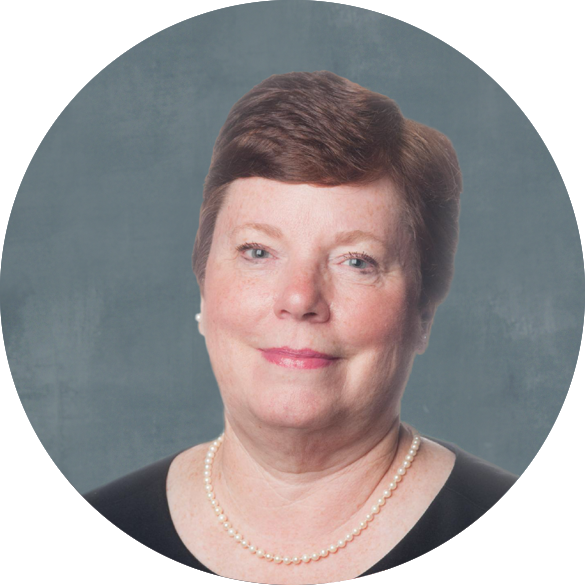Three reasons why better quality decedent management can help hospitals and the communities they serve
6 Minute Read – Hospitals strive to deliver quality care at every stage of a patient’s experience – across the full continuum. This continuum doesn’t end after a patient’s death. Hospitals have a moral and business obligation to ensure that deceased patients continue to be treated with dignity, and that their final journey through the healthcare system to their final disposition is handled seamlessly and compassionately for their family members and loved ones.
Yet recent news articles, such as this one in the Wall Street Journal, show that decedent management is an area in which many hospitals and their third-party collaborators are struggling.
RELATED: Leveraging a Supply Chain Platform to Manage Hospital Decedent Affairs
As hospitals seek to make improvements, one of the first tasks should be forming an Office of Decedent Affairs (ODA). These departments, which are already in place at a small but growing number of hospitals, are made up of specialists who are specifically focused on decedent management and who have backgrounds in areas such as pathology, mortuary services, and bereavement counseling.
Here are three key benefits that establishing an ODA and prioritizing decedent management provides hospitals, patients, and patients’ family members:
1. The ODA will improve the experience for the patients’ family members and loved ones
Compassionate and professionally trained decedent management specialists within the ODA play a key role in guiding and supporting the loved one’s next-of-kin through the very challenging and emotional decision-making process that occurs after the death. This process includes providing comfort and answering questions, determining how to honor the decedent’s prior requests, making decisions related to organ and tissue donation, facilitating the transfer of the decedent to the funeral home, and completing all the required paperwork.
The ODA will also create processes and procedures related to decedent management that will improve risk-management, improve relations with patients’ family members and loved ones, and prevent errors that could result in public relations crises.
To ensure ODA staff members have effective and robust decedent management procedures in place, hospitals must provide them with adequate tools and resources. The traditional manual processes and paper-based workflows that hospital tend to rely on reduce efficiency and increase the risk of error. Syft’s Decedent Management and Tracking Solution helps ODA staff optimize and automate workflows to ensure safe, seamless, compassionate, and compliant handling of deceased patients.
2. The ODA will increase the likelihood of organ and tissue donation, when appropriate and when aligned with the family’s wishes
Legally, at death, possession or custody of the patient’s remains pass to the surviving spouse or legal next-of-kin. The surviving spouse or legal next-of-kin can authorize an autopsy and donate tissues, organs, or even the entire body for therapeutic or educational purposes. Many times, autopsies or organ donations do not occur because the surviving spouse or legal next-of-kin have not been asked or they do not have the appropriate information to make an informed decision.
ODA staff members can provide private, empathetic, and non-coercive information to the family about organ donations and autopsies. When the decedent’s death falls within the jurisdiction of the state’s Medical Examiner, the ODA staff can assist with obtaining consent from the family. Studies indicate that with an established Office of Decedent Affairs, organ and tissue donations have increased by 300%,i while autopsies increased by 30% for non-medical examiner hospital deaths.ii
3. The ODA will lead to expanded medical knowledge
Similar to organ and tissue donation, ODA staff members can talk openly and honestly with patients’ families about whether they would like to have autopsies performed. They can answer any questions, so that families have an easier time determining if they would like to have an autopsy performed.
These honest and open (but never coercive) conversations, may lead to more autopsies, which can be an invaluable tool for building on medical knowledge, providing researchers and scientists with information that can lead to breakthroughs in care. Additionally, autopsy findings can bring immeasurable comfort to the patient’s family and next-of-kin by providing answers to questions and uncovering possible genetic implications for other family members. Between 15-40% of autopsies have unexpected findings, and nearly 50% of the time that autopsies are performed, the pathologist’s findings don’t match up to the clinician-filed death certificate.iii
A complete continuum of care
Hospitals owe it to patients, their families, and others who will benefit from organ and tissue donation and autopsies, to handle patient deaths in a timely manner, with compassion and dignity. Deceased patients and their family members should experience the same level of quality care and attention as all other patients receive. An ODA can create multi-faceted value for a hospital, from providing initial bereavement counseling to the family and ensuring a timely and efficient transition to the funeral home, to increasing organ donations and autopsies, potentially saving lives.
- i. Kowalski, A., Light, J., Ritchie, W., Sasaki, T., Callender, C., & Gage, F. (1996). A new approach for increasing the organ supply. Clinical Transplantation, 10(6), 653-657.
- ii. Juskewitch, J. E., Griffin, J. M., Maleszewski, J. J., Asiedu, G. B., Paolini, M. A., Regnier, A. K., Yrjo, M. L., Kendall, M. L., Comfere, N. I., Cheville, A. L., Carey,E. C., Amirahmadi, F., Rabatin, J. T., Moynihan, T. J., Reichard, R. R., & Aubry, M. (2020). Resurrecting the hospital autopsy: Impact of an Office of Decedent Affairs on consent rates, providers, and next-of-kin. Archives of Pathology & Laboratory Medicine.
- iii. Juskewitch, J. E., Griffin, J. M., Maleszewski, J. J., Asiedu, G. B., Paolini, M. A., Regnier, A. K., Yrjo, M. L., Kendall, M. L., Comfere, N. I., Cheville, A. L., Carey,E. C., Amirahmadi, F., Rabatin, J. T., Moynihan, T. J., Reichard, R. R., & Aubry, M. (2020). Resurrecting the hospital autopsy: Impact of an Office of Decedent Affairs on consent rates, providers, and next-of-kin. Archives of Pathology & Laboratory Medicine.
